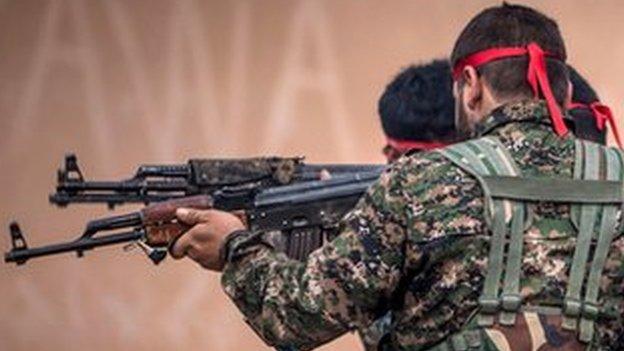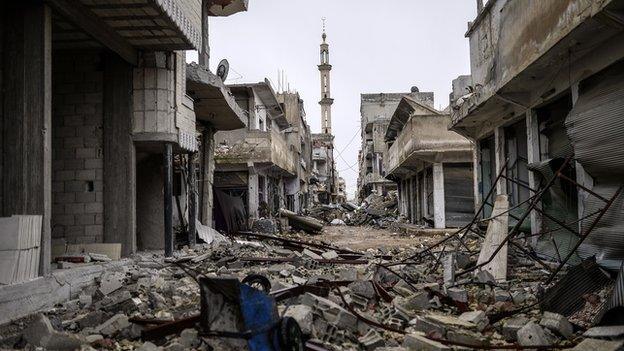Jac Holmes talks about IS fight in Syria on Kurdish TV
- Published
Jac Holmes left the UK in January to join the YPG, the main Kurdish fighting force in northern Syria
A former IT worker from Dorset who left the UK to fight against Islamic extremists has said he is fighting with Kurdish forces in Syria.
Jac Holmes, 22, from Bournemouth, left the UK in January to join the People's Protection Unit, or YPG, the main Kurdish force in northern Syria.
He says he will remain there all the time he is able to continue fighting.
Speaking to Ronhai TV, based in Syrian Kurdistan, he said governments needed to see what was going on in the region.
More than 1,000 IS fighters and hundreds of Kurds were reported to have died in the Syrian border town of Kobane in the region known to Kurds as Rojava.
He said: "It was very troubling when Kobane started and the rest of Rojava was attacked because, in the West, all you heard about was Kobane and nowhere else, so I think the rest of the world, especially the governments, need to send people here and see what it's like and see that we need to be helping these people in every way we can, especially in Rojava."
'Morale going down'
Mr Holmes, who had no military experience, was deported from Iraqi Kurdistan's Erbil Airport while trying to reach Syria.
A week later, he managed to cross the border via Sulaymaniyah in southern Kurdistan and joined a YPG military camp where other foreign volunteers were being trained.
He said: "For maybe one month we were not fighting, and me and the other westerners in our group thought that maybe we wouldn't fight and the morale was going down, then we started to fight and that's what we came here for so, as long as we keep fighting, then we will stay.
"The YPG is very good. The women, if they are willing to fight, then there is no reason why they shouldn't be equal to the men in every way.
"Even outside of the YPG in this town here, everyone you meet is very friendly and they welcome you as if you are someone in their family."
The Foreign Office has said anyone fighting in Syria is likely to be arrested on their return to the UK and would face charges if they were deemed to have taken part in acts of terrorism.
- Published23 February 2015

- Published13 February 2015
